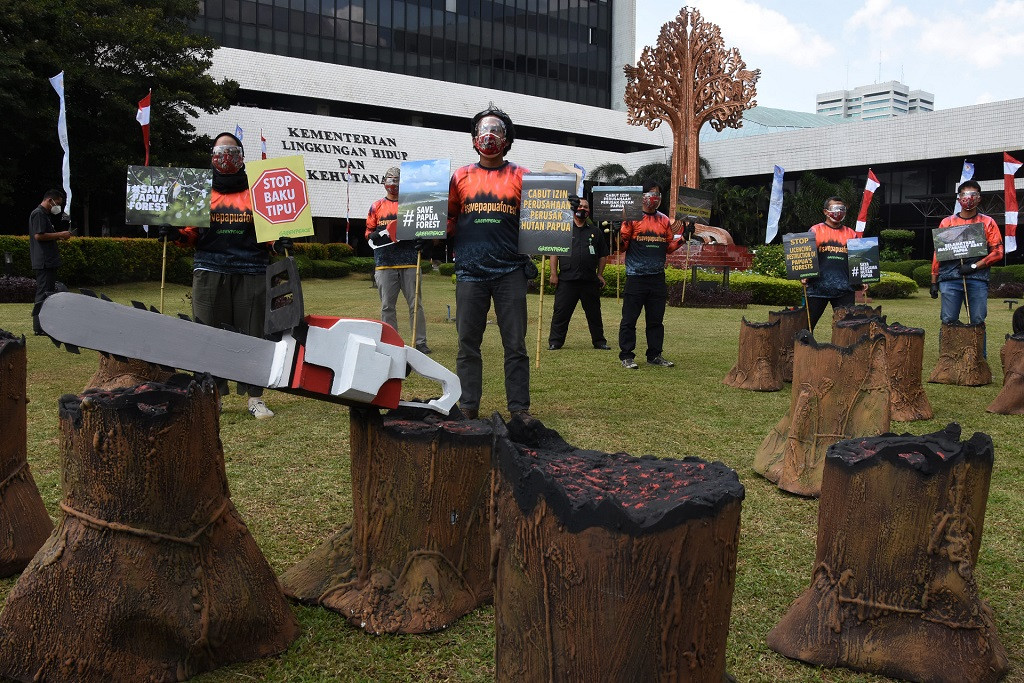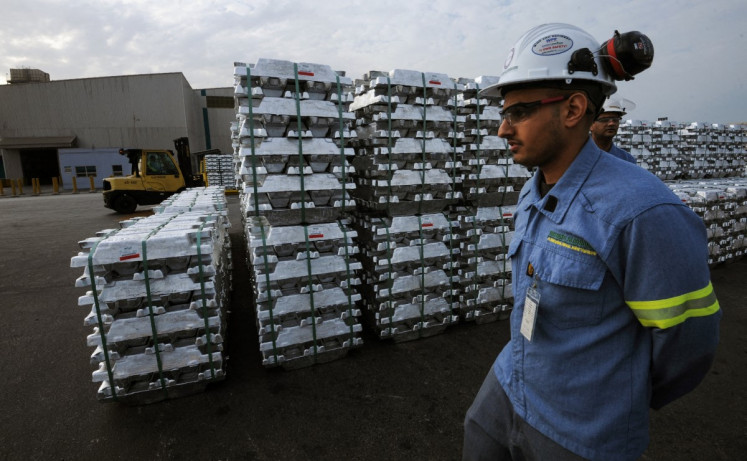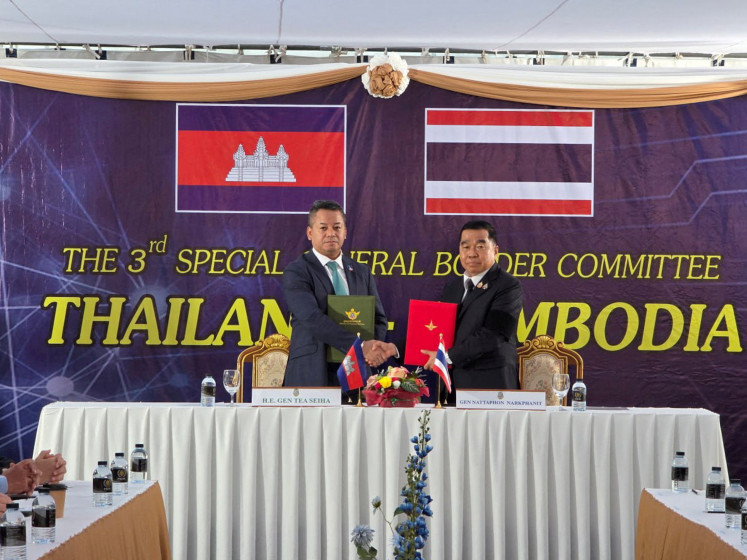Popular Reads
Top Results
Can't find what you're looking for?
View all search resultsPopular Reads
Top Results
Can't find what you're looking for?
View all search resultsDeforestation: When ‘no’ means anything but
Why did Indonesia sign the deal, when it was obvious to all that the agreement meant zero deforestation by 2030?
Change text size
Gift Premium Articles
to Anyone
 Greenpeace Indonesia activists stage a protest against the destruction of forests in Papua at the Environment and Forestry Ministry's office in Jakarta on April 8, 2021. The environmental group urged the government to follow up on the alleged permits issuance for concession area on forests in Papua to stop deforestation on Indonesia's easternmost island. (Antara/Indrianto Eko Suwarso)
Greenpeace Indonesia activists stage a protest against the destruction of forests in Papua at the Environment and Forestry Ministry's office in Jakarta on April 8, 2021. The environmental group urged the government to follow up on the alleged permits issuance for concession area on forests in Papua to stop deforestation on Indonesia's easternmost island. (Antara/Indrianto Eko Suwarso)
A
lmost as soon as President Joko “Jokowi” Widodo, along with more than 100 other leaders attending the United Nations Climate Change Conference (COP26), signed the landmark deal on “no deforestation” by 2030 on Nov. 2, Environment and Forestry Minister Siti Nurbaya Bakar put out a qualifier: For Indonesia, it did not mean a complete stop to deforestation.
Which part of “no” did we not understand?
Siti made the explanation of Indonesia’s position within 24 hours of the agreement during a meeting with overseas Indonesian students in Glasgow, the United Kingdom, where COP26 is taking place. She posted a statement to the same effect on her social media accounts – written in Indonesian to make sure folks back home knew where the country stood.
Should she not have explained this to the global audience at the conference? Having signed the agreement, Indonesia owes an explanation to the world. Sure enough, within days, news reached Glasgow of Indonesia’s about-face, but not from official sources.
Was Indonesia trying to pull a fast one at COP26? On the one hand, Indonesia is joining the world in calling for a stop to deforestation, but on the other, it is telling the nation that, in Siti’s words, there is no way the government will sacrifice Jokowi’s “massive development programs” in the name of “zero deforestation” and “zero carbon emissions”.
That the government should take this position is not surprising, but it is still disappointing. For years, the government’s promise to slow deforestation has been disregarded in the name of economic development, but the real beneficiaries of these programs are not so much the people living in forest areas, as the government claims, but rather big corporations that are turning large tracts of forest primarily into palm oil plantations.
Why did Indonesia sign the deal, when it was obvious to all that the agreement meant zero deforestation by 2030? No means no. No other countries with large forests to protect, like Brazil or the Democratic Republic of Congo, have opted out of the agreement.
Indonesia’s participation in any global deforestation deal is important. It is home to the third-largest concentration of tropical rainforests, and it is the fifth-largest emitter of greenhouse gases, coming mainly from the conversion of its forests and carbon-rich peatlands into farmland or plantations.
Halting or reversing deforestation has economic costs, which is why the Glasgow deal comes with a US$19 billion pledge to help countries finance the campaign. COP26 is also finalizing the details of a carbon trading mechanism to let countries and businesses trade emissions, which would help finance an end to deforestation.
Siti said Indonesia had only agreed to a carbon net sink from forest and land use, that is, to keep deforestation to a minimum while restoring forests and the environment. This, she said, was not the same as zero deforestation. She’s right on that one.
It does not explain why the government says one thing to the world and the opposite at home. Was this deliberate, or was it poor coordination among Jokowi’s advisors that led him to sign the deal?
When the world is expecting Indonesia to show leadership as the incoming president of the Group of 20 wealthiest nations beginning on Dec. 1, the Glasgow fiasco is bad public relations and hardly the stuff to kick off the country’s one-year presidency.









